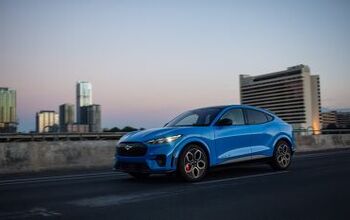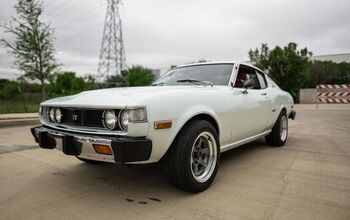Volkswagen Lays Out Timing for Global Restart

Vehicle production is a complex juggling act at the best of times, but industry-shuttering viral pandemics that sweep the globe in a matter of weeks can complicate the process. And aside from its joint-venture operations in China, Volkswagen finds itself, like other automakers, shut out of the business of building cars.
Perhaps ambitiously, the automaker aims to be back online, cranking out cars in the U.S. and Europe by the end of the month.
Other automakers doing business in the U.S. aim to resume production in the first or second week of May, but VW is ready to get to it. The automaker insists it’s not rushing into the restart, citing its newly crafted 100-point safety plan.
Under the phased restart, VW would open up two key European plants first, on April 20th. Those facilities are the German Zwickau and Slovakian Bratislava plants, builders of the automaker’s ID-badged electric vehicles and its large premium crossovers, respectively. (Germany has managed to get a handle on the coronavirus, cautiously announcing a limited return to normal civic life this week.)
One week later, on the 27th, VW plans to throw open the doors throughout the rest of Europe, as well as at its Chattanooga, TN facility, home of the Atlas crossover variants and the Passat sedan. Locales like Africa, Latin America, and Mexico will come online “successively” through the month of May, the company said.
“Volkswagen has prepared intensively for these steps over the past three weeks,” said VW brand chief operating officer Ralf Brandstätter in a statement. “In addition to developing a comprehensive catalogue of measures for the protection of our employees’ health, we have also forged ahead with the re-establishment of our supply chains.”
Aiding that effort are components plants in Germany and Poland that started production beginning on April 6th.
Bernd Osterloh, chairman of the automaker’s works council, claims the health protocol to be enacted at VW plants will set the standard for the industry.
“With about 100 measures, we are keeping the risk of infection at Volkswagen as low as possible,” he said in a statement, adding, “But we need to be realistic: at the beginning, the new procedures will give rise to queries and reservations on the part of our colleagues. We have never developed, produced and sold vehicles under these conditions before.”
[Image: Volkswagen]

More by Steph Willems
Latest Car Reviews
Read moreLatest Product Reviews
Read moreRecent Comments
- Lorenzo This car would have sold better if there was a kit to put fiberglass toast slices on the roof.
- Lorenzo The Malibu is close to what the 1955 Bel Air was, but 6 inches shorter in height, and 3 inches shorter in wheelbase, the former making it much more difficult to get into or out of. Grandma has to sit in front (groan) and she'll still have trouble getting in and out.The '55s had long options lists, but didn't include a 91 cubic inch four with a turbo, or a continuously variable transmission. Metal and decent fabric were replaced by cheap plastic too. The 1955 price was $1765 base, or $20,600 adjusted for inflation, but could be optioned up to $3,000 +/-, or $36,000, so in the same ballpark.The fuel economy, handling, and reliability are improved, but that's about it. Other than the fact that it means one fewer sedan available, there's no reason to be sorry it's being discontinued. Put the 1955 body on it and it'll sell like hotcakes, though.
- Calrson Fan We are already seeing multiple manufacturers steering away from EVs to Hybrids & PHEVs. Suspect the market will follow. Battery tech isn't anywhere close to where it needs to be for EV's to replace ICE's. Neither is the electrical grid or charging infrastructure. PHEV's still have the drawback that if you can't charge at home your not a potential customer. I've heard stories of people with Volts that never charge them but that's a unique kind of stupidity. If you can't or don't want to charge your PHEV then just get a hybrid.
- AZFelix The last time I missed the Malibu was when one swerved into my lane and I had to brake hard to avoid a collision. 1 out of 5⭐️. Do not recommend.
- 2ACL I won't miss it; it was decent at launch, but in addition to the bad packaging, GM did little to keep it relevant in the segment. I'd prefer that another domestic automaker doesn't just give up on the mainstream sedan, but unlike some of Ford's swan songs, the Malibu made an indifferent case for why they should live.


































Comments
Join the conversation
VW's timing will be great for the first 40,000 minutes and then the plan will end up in the shop like its vehicles after 40,000 miles.